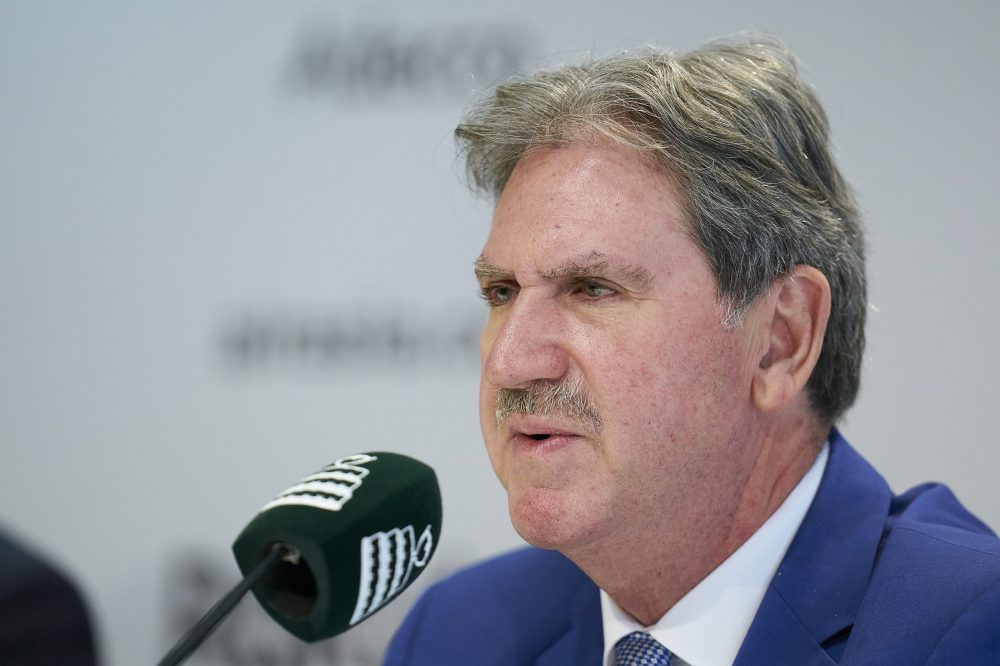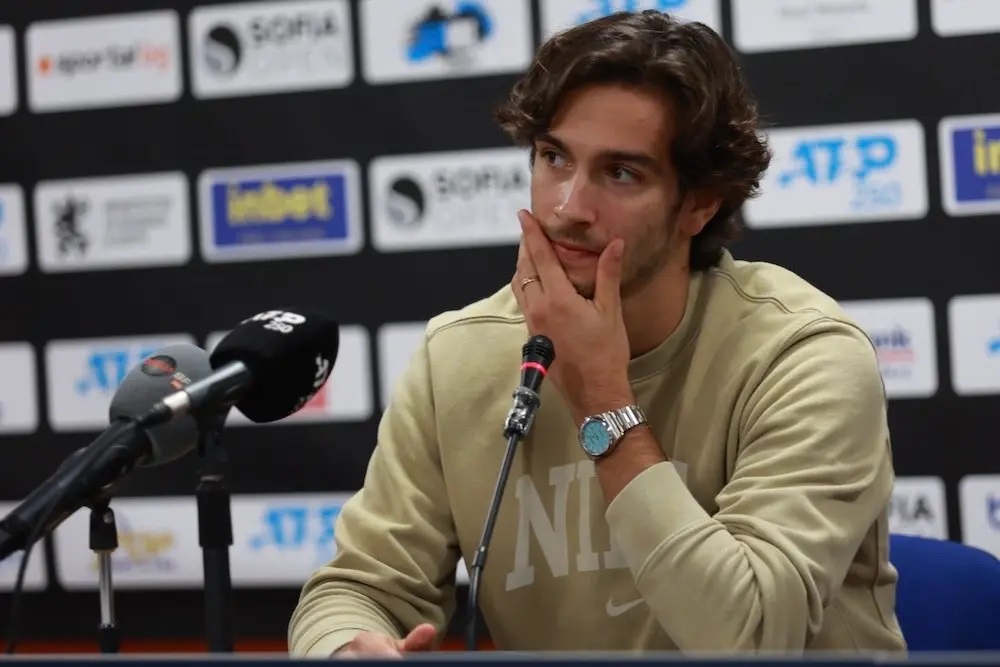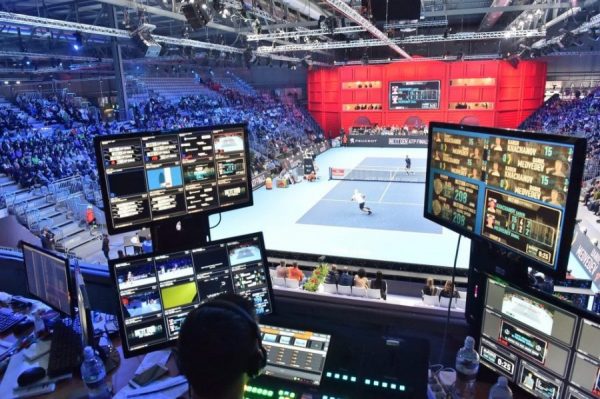by Luca de Gaspari
It’s never easy to be successful in a second career after retiring from competition, especially after achieving extraordinary results. Yet in the case of Mats Wilander, it can be said that his adventure as a pundit for Eurosport/Discovery has certainly been lavish with satisfaction. Of course, it is difficult to surpass yourself when you have been No. 1 in the world and have won 7 Grand Slam titles, three of which in that magical year, 1988, the first year the Australian Open was played on the courts of Melbourne Park.
In an exclusive meetup with Ubitennis the Swedish champion was willing to converse on the topic which with us Italians could only be one, first and foremost: Jannik Sinner who is ready in the starting blocks, amid all the expectations in the wake of his exceptional end of the 2023. For sure Mats appeared to be brimming with excitement for the start of a new great year of tennis.
“The Australian Open is always the most interesting Grand Slam because players have had a little bit of a break and you don’t know who had a great offseason and what kind of confidence they have from the 2023 season. There’s the confidence for Jannik Sinner: does it carry him through to the next season? Because he had an unbelievable finish of 2023 and does that confidence stay with him 1 1/2 months later?”
But where did Sinner’s improvements stem from? Wilander believes it all started with the quality of his service.
“We knew that his game was there. We knew that he is always improving something small here and there. Now he’s improved something big because the serve in the men’s and women’s game is one of the most important shots in the game again,” he said.
“I should say again because there was a time when… For Roger Federer it was important for sure but when Rafa Nadal was winning everything with Novak right there and Andy Murray, the serve wasn’t that important. They were physically very strong, they were very clever, they had no weaknesses in everything else and I think the way the game is going the serve is becoming very very important because you have to get some free points on your service game.”
“The guys are too good at hitting balls, they’re too good at covering the court today. Jannik Sinner improved his serve and that’s one of the hardest shots to improve and he improved his serve so much that he is suddenly as dangerous as Alexander Zverev with a big serve, Daniil Medvedev with a big serve. Suddenly he has that same weapon. We know how well he hits the ball, how well he competes, how well he moves, but he didn’t serve that well and now he does.”
“Carlos Alcaraz needs to improve his serve and when he does, then suddenly he’s going to be nearly impossible to beat. But Jannik with this serve improvement is hot he’s such a great player today, yeah such a great player.”
The real question is whether the level Jannik displayed in the 2023 autumn indoor swing (as well as outdoors in Asia) can be maintained when playing not only best of five matches but also having to cope with the tough Australian summer heat. And if he were not to win here in Australia, could 2024 be the year for his first Major? The three-time AO winner has little doubt.
“This year for sure and even in Australia. He’s had great Grand Slam tournaments. He could have won the US Open when he had a match point against Carlos Alcaraz. I believe he had a good chance of beating Casper Ruud if he had got to play him in the final.” He said.
“So I think that with his win against Novak in Davis Cup and obviously with the win in Turin as well I think that there he has proof in his mind “OK, I can beat the greatest player of all time”. I think learning how to play five sets for some players takes a little bit longer than other players and I think that there are a lot of little things that have to happen along the way and two very important things have happened to him: he beat the best player in the world at home and he won Davis Cup playing for his country. I think he’s going to learn so much from those situations that it’s going to translate into the Australian Open 100% for sure.”
“For sure now Australia and the conditions are the most complicated conditions that we have most probably in any Grand Slam. At the Australian Open, you have to be a little bit lucky and unfortunately for Jannik he is name is not Novak Djokovic. Djokovic will most probably play five matches out of seven at night and it’s cooler, there’s no sun and that is a big advantage for Novak Djokovic. Now it’s not unfair because he deserves to have that advantage. He’s proven that he is the one people want to watch so let’s put Novak at night most of the time. Roger Federer had the same situation. Rafa Nadal often had the same situation, so Jannik unfortunately is still kind of early in his career so he’s going to play.”
“One day he’s going to play at 1:00 in the afternoon, and it’s going to be 40°. The next match is going to play at 7:00 at night and it’s going to be 15°. The next match he is going to play indoors because it’s 50° and they have to close the roof. You have to be very able to adjust to the conditions and that’s the part with Jannik that I’ve seen improvements: he adjusted his serve, he’s adjusted sometimes hitting drop shots with a forehand, he’s adjusted becoming a much better volleyer, he’s even adjusted to be a great doubles player so he’s done so many smaller adjustments that another adjustment for him being the conditions in Australia I think it’s just a matter of time and I think time has come.”
“I think that he is up there with the 4 favourites to win the Australian Open. The number one is Novak Djokovic 100% for sure. Number 2 for me is Carlos Alcaraz and Jannik Sinner and then at number 3 comes Zverev, Tsitsipas, Medvedev, and Holger Rune. There are a lot of players that are right behind but to me, he belongs in that second group with Carlos Alcaraz being the favourites. Novak Djokovic is the clear favourite for sure.”
Since Djokovic is his clear favourite, we asked Mats if the Serb’s form may dip in 2024, after missing once again by a hair’s breadth, as in 2021, the calendar year Grand Slam last year.
“Most probably he had a good chance of winning Wimbledon. He had a good chance of winning the US Open when he lost to Daniil Medvedev. OK not on the day. on the day Medvedev was a human wall. (For) Novak maybe the pressure and the pressure was more in that final against them because it was the last Grand Slam they had. At Wimbledon, there was less pressure because yes, he was the favourite to win, but you never know. So I think
“And the matches that he loses on the tour, they are two out of three sets. In Grand Slams three out of five he just doesn’t lose tennis matches to the young guys because he understands how to play defence and when to play defence. Like last year he was a little bit injured in his right leg and what does he do? He hit his forehand harder last year in Australia than he’s ever hit his forehand before. So he knows how to make these adjustments on the day, in the moment, and maybe that’s what we are still waiting for Jannik Sinner to be able to: in the moment make these adjustments that work out in his favour.”
“Nobody knows how to do that so I see no reason why again I’m going to predict that he wins all four slams because I predicted it a couple of years ago, I predicted it last year. I have been wrong, but it’s been very very very close, and I think that there’s a really really really good chance that he wins all four this year. I really do.”
So, the way Mats Wilander sees it, also 2024 is not bound to be a turning point. Yet, if his predictions were to miss the mark, it may be an Italian player who shall prove him wrong…


 Hot Topics3 days ago
Hot Topics3 days ago
 Latest news3 days ago
Latest news3 days ago
 Hot Topics2 days ago
Hot Topics2 days ago
 Hot Topics3 days ago
Hot Topics3 days ago
 Focus2 days ago
Focus2 days ago
 Focus2 days ago
Focus2 days ago
 Focus2 days ago
Focus2 days ago
 Hot Topics2 days ago
Hot Topics2 days ago





























